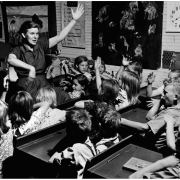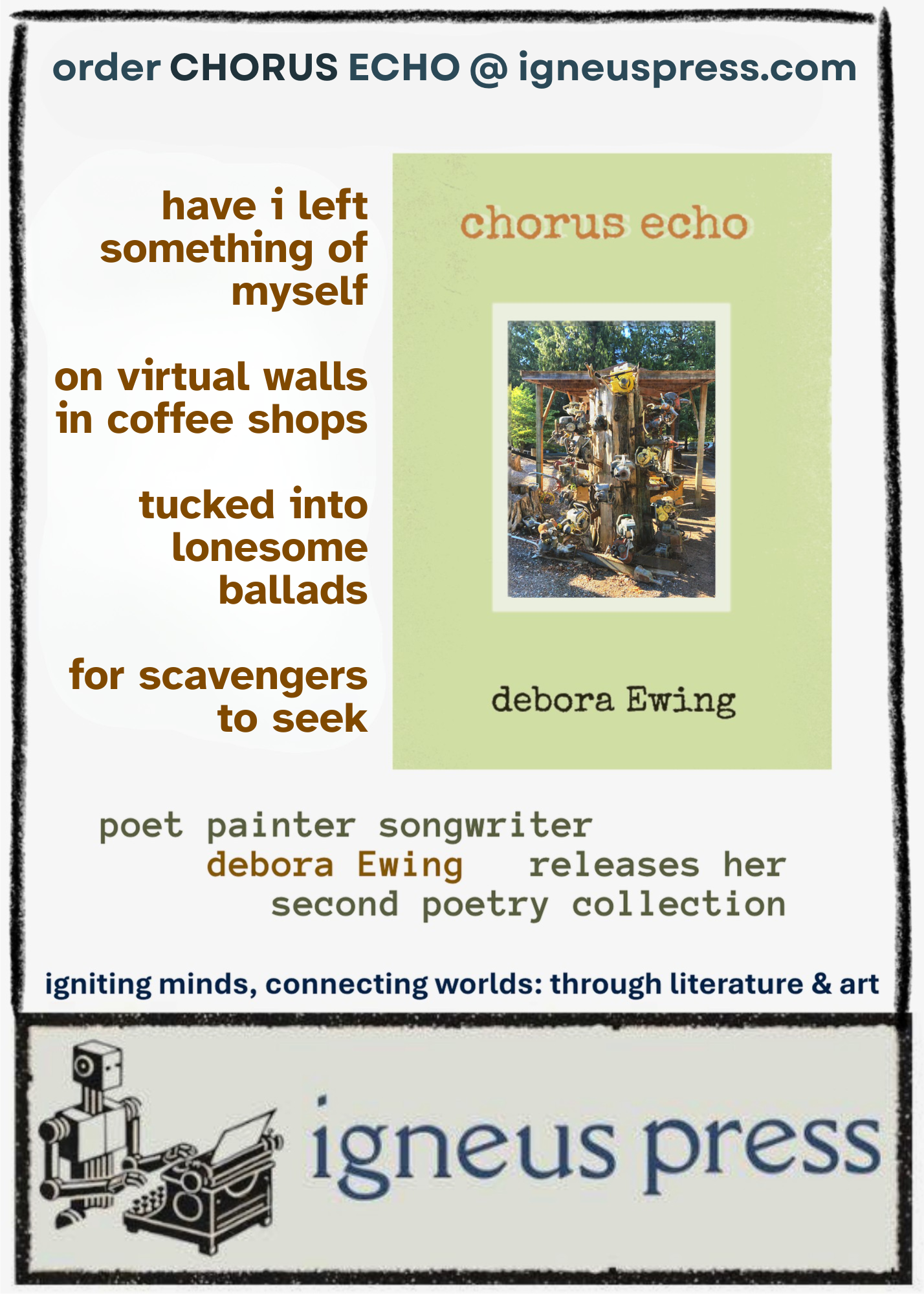Folk Songs in The Classroom: From Kentucky to New York City
From the Kentucky Hill Country to New York City - Jean Ritchie as Educator
Voice Notes: A Folk Diva's Guide to the Galaxy
Number 75, September 1, 2025
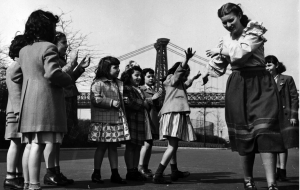
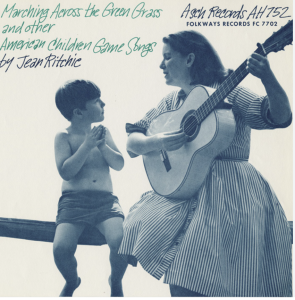
After her graduation from the University of Kentucky as a Phi Beta Kappa scholar in 1946, Jean Ritchie set out to be an educator and developer of potential social work programs for the people of her home state. The push to make these choices was her recognition that Eastern Kentucky was lacking in basic social programs that included education.
It was a logical choice for her and a natural one since she had grown up in a large family of musical brothers and sisters, and had the benefit of their experiences out in the world collecting songs during their educations, as they were all older than she. It was a daily occurrence in their life in Kentucky to learn songs, and to develop new versions of the snippets of songs they all (along with their dad, Balis Ritchie) had heard, learned, collected and developed over time.
Shortly after graduation, Jean left Kentucky for New York City to work as a teacher at the Henry Street Settlement on Manhattan’s lower East side. She had brought her mountain dulcimer with her as accompaniment in order to teach using her vast trove of ballads and play party songs. 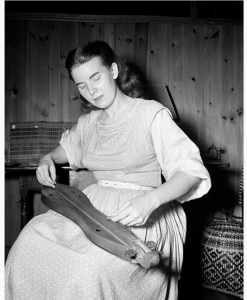
Word got out about Jean’s beautiful and authentic folk music, and eventually she was approached by the venerable folklorist Alan Lomax, who invited Jean to record for the Library of Congress. Over the years she became an internationally recognized folk singer and musician.
A wonderful book I recommend to you is “Jean Ritchie’s Kentucky Mother Goose” by the Ritchie scholar Susan Brumfield. It’s a comprehensive collection of songs sorted in categories: Songs At Home, Counting-Out and Other Rhymes, Schoolyard Play and Singing Games, and Just For Fun: “Straight Songs.”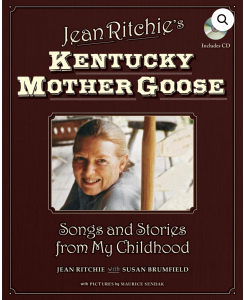
The origin of the designation “play party” song was descriptive: a tune to be played for parties where children played and often danced to the rhythms. These songs were often filled with humorous language, educational references to subjects (like arithmetic in “Love Somebody Yes I Do”: (“twice sixteen’s thirty two”) or even just whimsical language that though it purported to tell a story, the language was so silly as to not to make much sense (“Over the River Charlie”: My pretty little pink I once did think I never could do without you, now I’ve lost all hopes of you I care very little about you!”). Find “Jean Ritchie’s Kentucky Mother Goose” here
Many of these songs had origins in Britain, like “Killy Kranky,” where the progression of the lyrics describes a dance:
Killy Kranky is my song
Sing and dance it all day long
From my elbow to my wrist
Now we do the double twist
Broke my arm broke my arm,
Swinging pretty Nancy
Broke my leg, broke my leg
Dancin’ Killy Kranky.
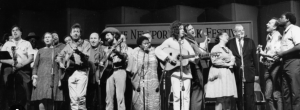
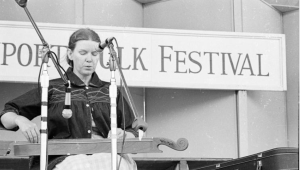
In addition to the classroom teaching, as part of her widening influence in the folk music world, she later developed instructional materials for the Appalachian dulcimer, including a book and a recording, which contributed to the dulcimer revival. She also taught and shared her family’s music and traditions at various folk festivals and through her recordings and books, becoming an ambassador for Appalachian culture and music.
Learn More About Jean Ritchie HERE
As always, thanks for reading!
Love and Blessings,
Susie
________________________________________
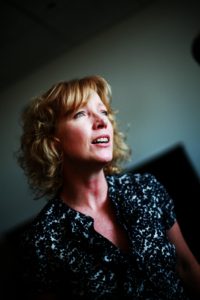
Photo by Cam Sanders
Award-winning recording artist, Broadway singer, journalist, educator and critically-acclaimed powerhouse vocalist, Susie Glaze has been called “one of the most beautiful voices in bluegrass and folk music today” by Roz Larman of KPFK’s Folk Scene. LA Weekly voted her ensemble Best New Folk in their Best of LA Weekly for 2019, calling Susie “an incomparable vocalist.” “A flat out superb vocalist… Glaze delivers warm, amber-toned vocals that explore the psychic depth of a lyric with deft acuity and technical perfection.” As an educator, Susie has lectured at USC Thornton School of Music and Cal State Northridge on “Balladry to Bluegrass,” illuminating the historical path of ancient folk forms in the United Kingdom to the United States via immigration into the mountains of Appalachia. Susie has taught workshops since 2018 at California music camps RiverTunes and Vocáli Voice Camp. She is a current specialist in performance and historian on the work of American folk music icon, Jean Ritchie. Susie now offers private voice coaching online via the Zoom platform. www.susieglaze.com
Folk Songs in The Classroom: From Kentucky to New York City
From the Kentucky Hill Country to New York City - Jean Ritchie as Educator
Voice Notes: A Folk Diva's Guide to the Galaxy
Number 75, September 1, 2025

